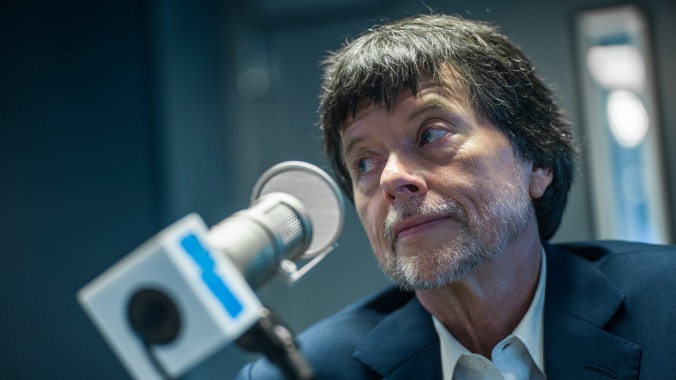Ken Burns on Confederate monuments: “They are racism memorialized in our public spaces”

Ken Burns, a national treasure so precious that Nicolas Cage should really make an adventure movie about trying to find him, has done something quite rare for him: He’s made a film that’s under 10 minutes long. (Under 10 hours long is rare for KB.)
Okay, it’s not so much a film as it is a video essay, created for the Opinion page of the Washington Post, but it’s an unsurprisingly informative, thoughtful, and effective piece of filmmaking all the same. The short runtime may be a feat for Burns, but the video’s aim is all the more impressive. In it, he tears down Confederate monuments with words—his own, and James Baldwin’s.
Unlike the literal tossing of monuments happening across the country this month, Burns’s toppling is intellectual and metaphorical.
It’s worth watching in full (and again, it’s short) but here are some quick highlights:
Burns begins the video with an excerpt from an interview he did with James Baldwin for the 1985 documentary The Statue Of Liberty, in which Baldwin considers the question, “What is liberty?” Using Baldwin’s response as a jumping-off point, Burns contrasts the construction of the Statue Of Liberty and the reasons and people behind its construction with other monuments being built contemporaneously.
As he puts it:
During the 10 years in which the Statue Of Liberty was constructed, 20 Confederate monuments were erected across the United States in places as large as New Orleans and Charleston, South Carolina, as small as towns like Quitman, Georgia and Marianna, Florida. And since then, hundreds more have been built, the most recent in 2015. These monuments were efforts to reimpose white supremacy and rewrite history. They are racism memorialized in our public spaces.
But the argument is more thoughtful than “Statue Of Libery good, statue of Robert E. Lee bad.” Burns argues that monuments are about mythology, not history, and it’s history—truth—that matters most. And in that respect, the Statue Of Liberty, too, is a myth. Burns returns to Baldwin, who calls the monument “a very bitter joke meaning nothing [to Black Americans],” and then the filmmaker adds this:
Earlier in [The Statue Of Liberty], many people explain how to them the Statue Of Liberty is a beacon of hope, a reflection of our highest American ideals, and yet here Baldwin’s words form a searing counterbalance that even our most venerated monuments represent a mythology. While we may hope the statue represents our highest aspirations for what America can and should be, it can also be a reminder of where and how far we fall short.
Like several of Burns’ films, The Statue Of Liberty can be streamed through Amazon Prime; his epic Baseball is available for all through PBS’s website.
Send Great Job, Internet tips to [email protected]
Looking for ways to advocate for Black lives? Check out this list of resources by our sister site Lifehacker for ways to get involved.